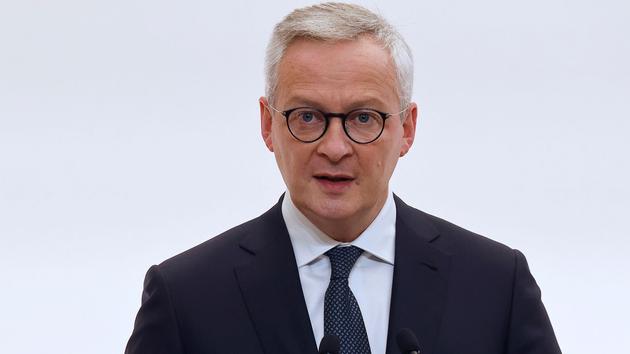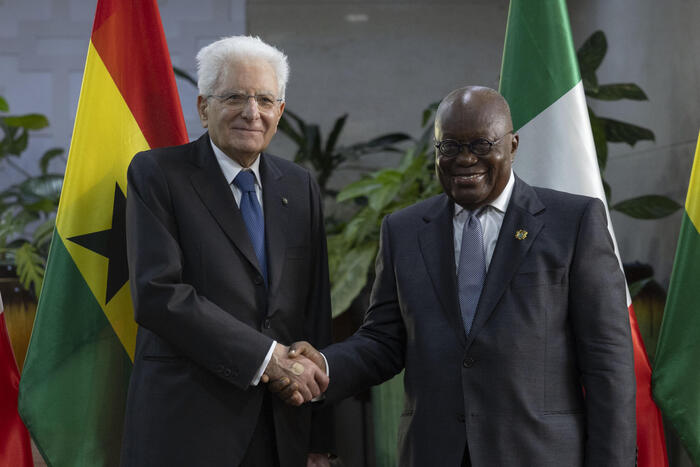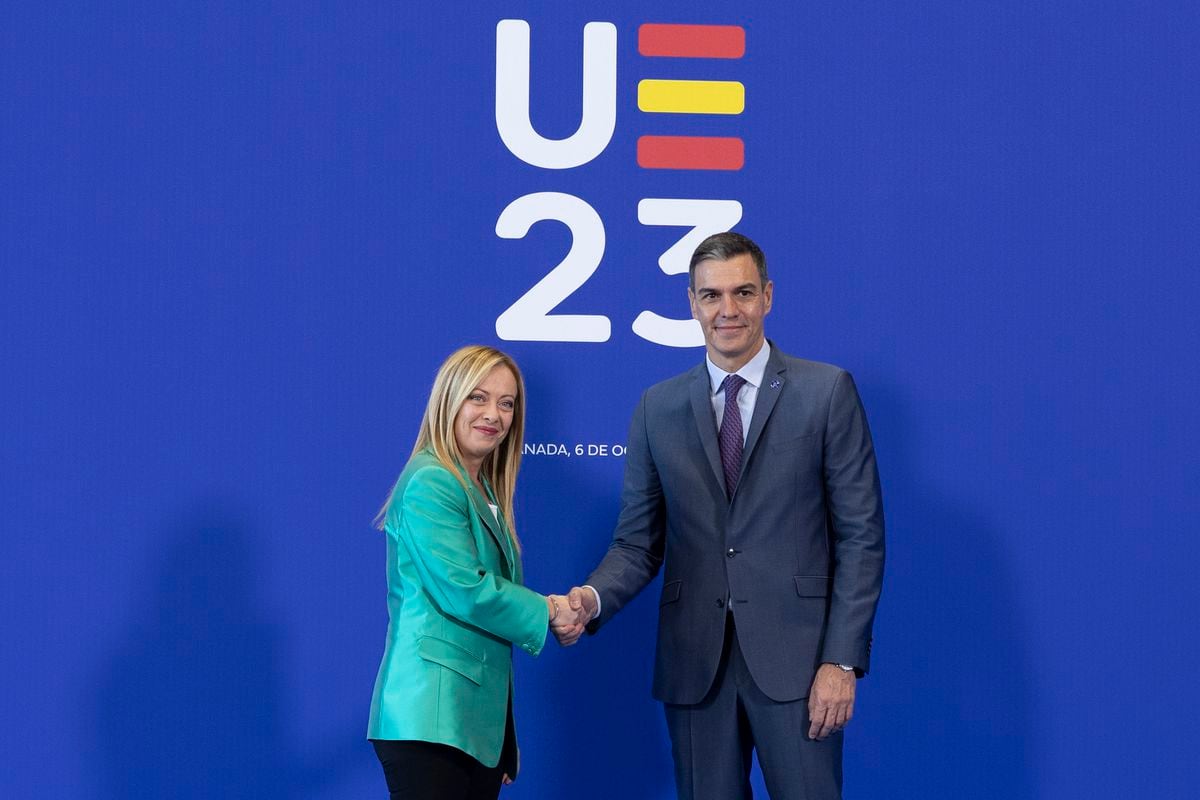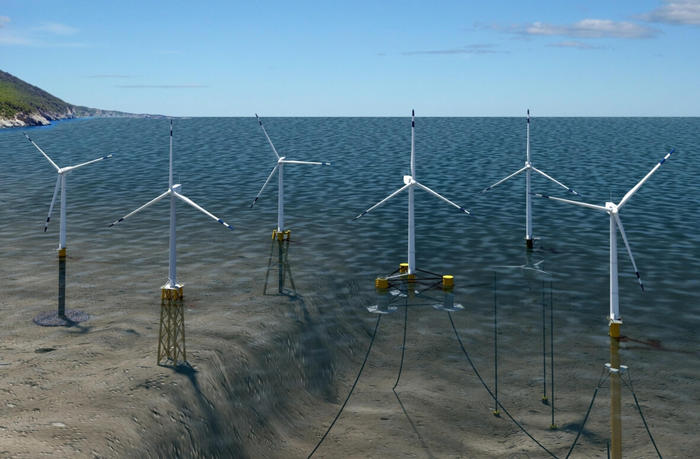Alexandre Medvedowsky is President of SYNFIE.
Patrick Devaux is Vice-President of SYNFIE.
Olivier de Maison Rouge is a lawyer.
“
Without economic independence, there is no longer any independence at all
” (Charles De Gaulle).
Sovereignty has suddenly (re) become fashionable.
The economic, industrial and health crises are bringing the concept up to date in the face of the rise of China, and the vehement attitude of the United States.
It now rhymes sometimes with independence, sometimes with autonomy.
Read also:
Is France's food sovereignty threatened?
In fact, this health crisis has not only highlighted the flaws in the public anticipation system or the endemic weaknesses of an industrial fabric in decline, but above all the absence of doctrine in terms of sovereignty and economic security.
This leads to taking up the fundamentals and updating them in our current context.
Definition of sovereignty
In truth, the question of sovereignty, beyond the reference to the authority of the king, questions political science and more precisely the conditions for exercising political will.
In summary: To be sovereign is to be master of one's own home.
Sovereignty is in fact first and foremost a political instrument, as an affirmation of the primacy of institutions over other spheres: whether economic, industrial, digital, financial, etc.
Since the XVIth Century and the writings of Jean Bodin, sovereignty is also a legal notion which marks the advent of the modern state.
Its definition was stabilized three centuries later by the French jurist Louis le Fur who made sovereignty the quality of a State "
to be obliged or determined only by its own will, within the limits of the superior principle of law, and in accordance with the collective goal that it is called to achieve
. ”
The first title of the Constitution of October 4, 1958 is entitled "Of sovereignty" and makes the President of the French Republic the guarantor of national independence (article 5)
In this regard, the first title of the Constitution of October 4, 1958 is entitled “
Of sovereignty
” and makes the President of the French Republic the guarantor of national independence (article 5).
The founder of the Fifth Republic, General De Gaulle explained: We cannot have an independent policy and independent defense if we do not have an independent economy and sound finances.
This is the sine qua non of national independence, he said (quoted by Alain Peyrefitte, C'est De Gaulle, Tome 1, Editions de Fallois / Fayard, 1994, p. 530)
In this legitimate concern for economic sovereignty and national independence, the France of the “thirty glorious years” had built an administered, coherent whole, favoring major industrial and space projects, energy independence, and atomic military autonomy.
The large companies of this strategic state have served as an armed wing, securing supplies of essential raw materials (Elf-Aquitaine, Cogema, Framatome, GdF, etc.) and preserving this precinct.
Globalization and vulnerability
But this balanced whole was unraveled for several decades, when France embarked on unbridled globalization.
Breaking with its traditional spheres of influence and its reserved markets, it has abdicated in the face of global standardization, thereby diluting its authority and power, but even its independence, without however managing to compete on an equal footing.
While the globalization of the economy has led to an ever more intense constrained standardization of commercial relations in all its forms (financial, banking, fiscal, legal, etc.), with a declared discourse of self-regulation by the economy (referring to the dogma of Adam Smith and the invisible hand), the states return to maneuver and take more control of affairs.
Read also:
"The media, the first pillar of Europe's digital sovereignty in the face of GAFA"
Didn't the Alstom affair shed light on the reverse side of this attitude of economic brutality?
This sale revealed the way in which France had given up its legal sovereignty in the face of what has been called “
the extraterritoriality of American law
”.
In fact, by connecting links, however tenuous they may be, the American judicial authority declared itself competent, in defiance of the rule of territoriality of the law.
Thus, violating the rules of international comity, the American justice instituted proceedings under the fight against corruption beyond its borders, for contracts passed by the French company in Asia, thus engaging in blackmail with the management of 'Alstom, for the benefit of General Electric, which was able to complete its acquisition offer under the pressure of a substantial financial fine.
Should we finally rely on Microsoft to store the centralized database of health data (known as Health Data Hub, whose name is already a defeat)?
In the same vein, do we also have to submit to American administrative authorizations so that French industry can export its armaments (ITAR regulations)?
Indeed, in application of the American legislation, this one grants itself a right of veto on the exports of arms by foreign industrialists, since these integrate electronic components or of any kind made in the United States.
Should we finally rely on Microsoft to store the centralized database of health data (known as Health Data Hub, whose name is already a defeat)?
Will we have to let Huawei access our 5G connection data tomorrow?
Should we continue to sell our assets to China?
The instruments of economic and industrial independence
If France has often folded lately, it has undoubtedly not given in.
It has also been able to acquire an arsenal which today contributes to establishing relatively efficient economic and financial control.
This is the case of the blocking law of 1968 which is intended to filter information entrusted to foreign judicial authorities, but which is bypassed by the United States, in particular thanks to the Cloud Act, and which should therefore be reformed. .
It is the adoption of the law on trade secrets that allows companies to preserve their strategic information assets.
In terms of cybersecurity, the Essential Service Operators (OSE) regime identifies strategic economic activities: energy, transport, banking and insurance, education, health, drinking water, collective catering.
To read also:
"Freed from Leviathan, France will once again become the place of all innovations"
With regard to the control of foreign investments in France (IEF), the State sets a prior authorization regime for the acquisition of strategic companies for the same activities, in addition to those of national defense.
But as evidenced by the sale of Photonis, the system can still be improved.
To restore economic sovereignty, therefore, an ambitious policy is needed which would fix the cardinal axes, with a strong impetus endowed with an autonomous financial investment.
This action could be consolidated with the assistance of a sovereign fund such as the one envisaged by the deputy Olivier Marleix who has registered a bill to this effect, if necessary funded by a large national loan, all in such a way as to endow the '' Status of its strategic sector financing policy.
It would be a question of setting up an interministerial agency with missions and role relating to economic security and strategic intelligence
Economic independence must consecutively be defined as an objective of priority and national solidarity.
This ambition must be part of the roadmap of the new High Commission for Planning, which already reflects a national recovery effort coupled with the recovery plan already underway.
Finally, there is still a lack of a robust public structure, placed at the highest level of the State.
This would involve setting up an interministerial agency with missions and role relating to economic security and strategic intelligence, like ANSSI in the digital sector, which would also report to the Secretary General of Defense. and National Security (SGDSN), responsible for assisting the Prime Minister in the exercise of his responsibilities in terms of economic security.
This structure, which we propose to call the National Agency for Economic Security and Strategic Intelligence (ANSEIS) would be an equivalent of CFIUS as of the American Advocacy Center.
For an independent Europe
Finally, Europe must not be absent from these debates on strategic autonomy.
It is difficult to speak of “
European sovereignty
” as the current institutions of the European Union are a form of federal state without saying so and in reality its members pursue distinct, very often divergent interests.
No doubt the path of a confederation would have been better inspired with better targeted attributions and delegations.
The fact remains that the dispossessions by States of political instruments must be based on the principle of subsidiarity.
This means that the different institutional levels must strive for the same higher interest objective, but at different levels of delegation.
To read also:
"The fascination of Emmanuel Macron for the debt betrays the fact that he was never a liberal"
In other words, just as intelligence tends to work together at European level, there needs to be the same will to coordinate to forge a harmonized economic union, pursuing identical and protective interests within an independent framework.
This must result in digital choices, like what Thierry Breton is trying to do, but also in a choice of European priority.
For too long, economic Europe has offered itself to all winds, redeemed, dismembered by its economic rivals, without implementing a continental preference when the other powers preserved their precincts.
We must put an end to the European angelism which pursues a chimera and instill a real feeling of supranational economic security.
This is modestly the angle taken to institute in Brussels a control of foreign investments, which entered into force at the beginning of October.
We now need to forge more of an offensive common economic culture.
However, it seems that real political will is emerging in completely new proposals in Brussels.
It would seem, however, that a real political will is emerging in completely new proposals in Brussels, such as the one emanating from the European Council a week ago, evoking the objective of strategic autonomy for Europe, or the one evoking the need technological sovereignty and protection of information for European companies, through digital technology.
Another desire, economic this time, seems to take shape, with the evocation by certain countries including the Netherlands, yet champions of hyper-liberalism, to acquire a European instrument of economic anti-coercion, aimed at the extraterritoriality of American law, or even a "
level playing field
", an idea of fair competition, proposed by DG Competition, in order to correct the differences in treatment on imports of products between China and the United States and 'Europe.



/cloudfront-eu-central-1.images.arcpublishing.com/prisa/VFQFJYOVGFFAJOTNW2NNJRUS3I.jpg)




/cloudfront-eu-central-1.images.arcpublishing.com/prisa/PWWJZJX4RNHDPFBDM57S7RFHGQ.jpg)






